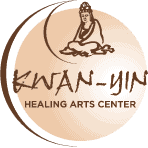We all want to trust that our bodies will keep up with our desire
for activity and adventure in life. But when diagnosed with
osteoporosis or osteopenia, the strength of our bones becomes
questionable. Along with many other conditions that are considered
parts of aging, there is a great deal of prevention we can do to
help work toward having a long active life.
Caucasian women who are post-menopausal are the most likely group
to develop a weakness of the bone integrity where the bone density
has diminished. Often this can go undiagnosed for many years.
Once it reaches a certain point, the risk of fracture is much
higher and bones are also more difficult to repair. Osteoporosis
can result in increased pain, postural changes, deformity and
disability.
Typically the recommendation for building strong bones is to have
plenty of calcium in one’s diet. Unfortunately the idea that
eating dairy products regularly will benefit the bones is largely a
myth (1). Diets high in animal proteins tend to increase the
incidence of osteoporosis (2) as the proteins obstruct the ability
of the body to utilize the calcium. Foods high in phosphorus (such
as soda pop and milk) tend to be harmful to bones as well as salt
and caffeine. (3,4)
Calcium rich foods that are great for your overall health include
fish (sardines, salmon), green leafy vegetables (kale, chard,
spinach, collard greens, bok choy, etc…) and legumes (pinto beans,
mung beans, black beans, etc…) (5).
According to Chinese medicine, the bones are an expression of our
kidney yang energy, which correlates to our deepest energy source.
Protecting our essential energy by living a moderate, low stress
life is then great advice for protecting our bones. Consider the
choices that are made on a daily basis and evaluate if they are
sustainable for long-term health.
Dr Hart’s list of Osteopenia/Osteoporosis DO’s and DON’TS:
DO: Exercise daily! Weight bearing exercise is as simple as going
for a walk. Yoga balancing poses are especially helpful. 15-30
minutes daily is a must.
DO: Eat leafy green vegetables every day.
DO: Supplement quality minerals. 1,000mg calcium, 400mg
magnesium, 25mg zinc and 3mg copper.
DO: Alkalinize your diet. Reduce simple carbohydrates (breads,
pastas, etc), limit animal protein and sugar consumption. Start
your day with a big glass of water with a squeeze of lemon in it.
DO: Enjoy mineral rich herbal tea. Nettle leaf, alfalfa, budock
root and licorice root are all nutritive herbs that are generally
safe to consume on a regular basis and taste great.
DON’T: Consume caffeine on a daily basis. Coffee particularly
affects calcium due to the high acidity.
DON’T: Increase dairy consumption to gain calcium.
DON’T: Overdo it. Excess stress will deplete your energy.
DON’T: Smoke cigarettes. Nicotine and other toxins are found to
damage bone health.
DON’T: Put off taking care of yourself. Prevention is still the
best medicine!
And finally,
DO: Consult with your favorite Naturopathic Physician to help
create a personalized plan to support the health of your bones and
the overall you!
By Sara Hart, ND, MSOM, LAc
References:
1. Folden Palmer, Linda. Bone Density: The Big Dairy Fallacy.
Dynamic Chiropractic
Jan 1, 2002; Volume 20 (1)
2. Abelow BJ, Holford TR, Insogna KL. Cross-cultural associations
between dietary animal protein and hip fracture: a hypothesis.
Calcif Tissue Int 1992;50:14-18.
3. Zarkadas M, Geougeon-Reyburn R, Marliss EB, et al. Sodium
chloride supplementation and urinary calcium excretion in
postmenopausal women. Am J Clin Nutr 1989;50:1088-94.
4. Hernandez-Avila M, Colditz GA, Stampfer MJ, et al. Caffeine,
moderate alcohol intake, and risk of fractures of the hip and
forearm in middle-aged women. Am J Clin Nutr 1991;54:157-63.
5. Marz, Russel. Medical nutrition from Marz. Omnivite Nutrition,
Portland, Or 1992.
